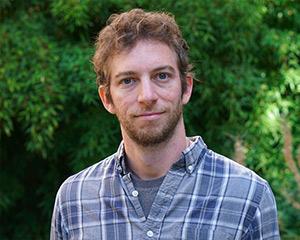Avi Kenny is a graduate of the UW Biostatistics PhD program, where he worked with Dr. Marco Carone. Previously, he served as the Director of Research, Monitoring, and Evaluation at Last Mile Health.
What led you to pursue a career in global health?
I first became interested in global health during my junior year at Brown University, when I did some work with Gardens for Health International, an organization operating in Rwanda that helps to build community gardens for HIV-positive individuals in the hopes of decreasing rates of malnutrition, allowing for antiretroviral drugs to be more effective.
That summer, I took a two-month trip to Rwanda to continue my work, and witnessed firsthand just how bad things were in terms of primary healthcare access and quality. This experience led me to refocus my career path on global health, and when I graduated college, I knew I wanted to work abroad with an organization working to fight the dramatic healthcare inequity that pervades the developing world.
After graduating, I landed a job in Liberia with Last Mile Health, a nonprofit that helps improve healthcare access for remote populations by partnering with governments to recruit and train networks of community health workers.
Why did you choose biostatistics?
I’ve been a math nerd my whole life, and at Last Mile Health, I was able to apply mathematical thinking to real-world problems. But the more I learned about research and data analysis, the more I realized just how much I didn’t know, and I concluded that the only way I could attain the level of skill I desired in terms of working with data was through graduate study. Biostatistics was a natural choice given that it allows for the simultaneous pursuit of theoretical rigor with practical application of methods.
Why did you choose UW?
Because of the world-class rigor of the biostatistics program, the focus on practical applications of research in real-world settings, and the number of faculty involved in global health and causal inference research. Purely theoretical research projects, while intellectually interesting, are not what I came here to do; I want my research to have an actual impact on people’s lives. And I believe that the faculty at UW will push me to sustain this focus.
What kind of research are you doing?
My primary research interest is in developing statistical models and techniques that aid in causal inference. I became interested in this particular subfield after reading a book called “Counterfactuals and Causal Inference,” which I purchased attempting to learn the logic behind the choice of including or excluding possible covariates in a regression model. My interests lie at the intersection of biostatistics and epidemiological methods, but being a mathematician at heart, I’d love to deal with the statistical side of things, while keeping epidemiological applications in mind.

